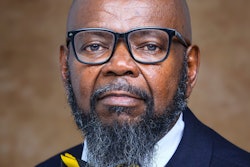Education plan includes a tax credit for college students who perform community service and grants for community colleges.
After nearly two years in control of the U.S. Congress, Democrats claim two major legislative victories: the College Cost Reduction and Access Act of 2007, which increased funding for the federal Pell Grant program by millions, and the reauthorization of the Higher Education Act, a broad piece of legislation that further extends the federal Pell Grant program and creates many new federal reporting and regulatory requirements dealing with textbooks and tuition.
Under the leadership of presidential nominee Sen. Barack Obama of Illinois, Democrats vow to do more to advance their educational agenda. Delegates at the Democratic National Convention in Denver voted to adopt the platform committee’s report titled, “Renewing America’s Promise.”
The platform includes a pledge to create a $4,000 American Opportunity Tax Credit that college students would receive in exchange for community service, and a simplification of the financial aid process.
The platform also highlights a renewed commitment to the nation’s community colleges and minority-serving institutions. “At community colleges, we will invest in short-term accelerated training and technical certification for the unemployed and underemployed to speed their transition to careers in high-demand fields and emerging industries. We will reward successful community colleges with grants so they can continue their good work,” the report states, adding that Democrats would work to ensure the “viability and growth” of MSIs.
Throughout his campaign, Obama has touted a laundry list of educational reforms, ranging from increased access to Advanced Placement courses to expanding summer school programs; and Obama’s plan for the future of the nation’s education system is aligned with his party’s platform.
Dr. Catherine Lugg, an associate professor of education at Rutgers Graduate School of Education, has been critical of both the Democratic education platform and that of the Republicans.
“I’m harsh on both candidates, but Obama’s plan is more pragmatic,” she says. “Streamlining financial aid would make everyone’s life easier, particularly for those students who rely on financial aid the most.”
At the forefront of Obama’s agenda is strengthening early childhood education, closing the achievement gap, improving high school graduation rates and reforming No Child Left Behind, claiming it is underfunded and inept.
“Now is the time to finally meet our moral obligation to provide every child a world-class education, because it will take nothing less to compete in the global economy,” Obama said, during his historic acceptance speech for the Democratic nomination at Invesco Field in Denver. “Michelle and I are only here tonight because we were given a chance at an education. I will not settle for an America where some kids don’t have that chance … And we will keep our promise to every young American — if you commit to serving your community or your country, we will make sure you can afford a college education.”
Lugg and Dr. Kenneth Wong, the Walter and Leonore Annenberg Chair for Education Policy and the Chair of the Education Department at Brown University, agree that the strength of Obama’s education platform is its focus on early childhood education.
Obama says he will provide early learning grants through a “Zero to Five” plan, which will help states move toward voluntary, universal pre-school and increase Head Start and Early Head Start funding.
“We need a stronger alignment between early childhood education to K-16 education. Achievement gaps start very early in the education process. When they are addressed early, gaps are quite manageable. By the eighth grade, racial gaps become nearly impossible to close,” says Wong. “We can no longer afford to isolate K-12 research from higher education research.”
On affirmative action, the platform reaffirms Democratic Party support for it, specifically in higher education and government contracts. But, ultimately, linking education and financial aid to community service will create more diversity at the university level, Wong says.
The nation’s three largest teachers’ unions, the National Education Association, the American Federation of Teachers and the United Federation of Teachers, have endorsed Obama.
But some experts are reluctant to endorse his platform. Dr. William Tierney, director of the Center for Higher Education Policy Analysis at the University of Southern California, says, “Senator Obama is terrific, but I don’t think there’s a lot of substance, yet, with regard to fostering the transition from high school to college and ensuring that the research capacity of U.S. universities receives the support necessary to carry out the needed work that will enable us to be competitive.”
Diverse will cover the Republican platform in a later edition.
Email the editor: [email protected]
Click here to post and read comments
© Copyright 2005 by DiverseEducation.com


















